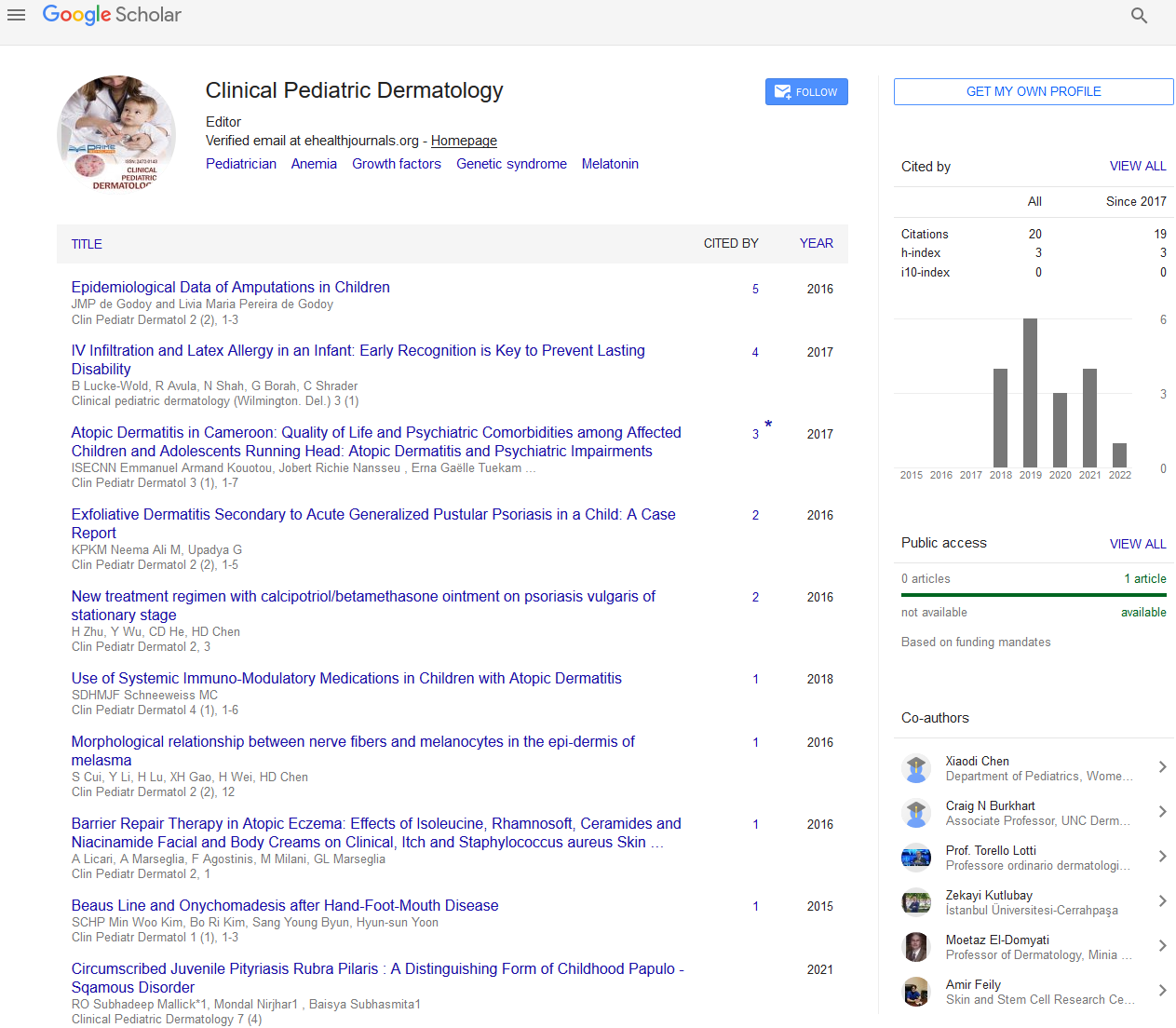Opinion - (2023) Volume 9, Issue 2
Assessing and Comparing Enthusiastic Insights and Change Attitude of Plastic Surgery Inhabitants
David B Hom*
Department of Otolaryngology Head and Neck Surgery, University of California San Diego, USA
*Correspondence:
David B Hom,
Department of Otolaryngology Head and Neck Surgery, University of California San Diego,
USA,
Email:
Received: 31-May-2023, Manuscript No. IPCPDR-23-17108;
Editor assigned: 02-Jun-2023, Pre QC No. IPCPDR-23-17108 (PQ);
Reviewed: 16-Jun-2023, QC No. IPCPDR-23-17108;
Revised: 21-Jun-2023, Manuscript No. IPCPDR-23-17108 (R);
Published:
28-Jun-2023, DOI: 10.36648/2472-0143.9.2.19
Introduction
Plastic surgery, a branch of medical science focused on enhancing
appearance and correcting physical imperfections, has grown
exponentially in popularity over the years. While plastic surgery
can produce remarkable results and positively impact individuals’
self-esteem, it is essential to recognize that like any medical procedure,
it comes with potential risks and side effects. In this article,
we will delve into the various side effects of plastic surgery, exploring
both short-term and long-term complications associated with
popular procedures. Understanding these potential risks is critical
for individuals considering plastic surgery, as well as for medical
professionals providing informed consent and post-operative care.
In the immediate aftermath of surgery, patients may experience
pain, swelling, and discomfort. The intensity and duration of these
side effects vary depending on the procedure’s complexity and
individual pain tolerance. Bruising and swelling are common side
effects after plastic surgery, especially in areas where tissue manipulation
occurred. While they are temporary, they can cause
discomfort and affect the appearance during the initial recovery
phase. General anesthesia, commonly used in many plastic surgery
procedures, can cause nausea and vomiting in some individuals
upon waking up from surgery.
Description
Incisions made during surgery can lead to wound-related issues,
such as infections, seromas, or hematoma. Skin discoloration or
changes in pigmentation can occur near the surgical site, though it
usually resolves with time. All surgical procedures result in scars,
but the extent and visibility of scars depend on factors such as surgical
technique, wound healing, and individual skin characteristics.
Nerves in the surgical area may be affected, leading to temporary
numbness or altered sensation, which typically resolves over time.
Some patients may experience issues related to stitches or sutures,
such as stitch abscesses or allergic reactions to suture materials.
Allergic reactions to anesthesia, medications, or other substances
used during surgery can occur, but they are relatively rare. In some
cases, patients may experience persistent or chronic pain at the
surgical site, which may require further medical evaluation and
management. While surgeons strive to minimize scarring, some
scars may remain visible and affect a patient’s satisfaction with the
procedure’s outcome. Achieving perfect symmetry is challenging
in plastic surgery, and some degree of asymmetry may persist after
the procedure. Nerve damage can result in long-term numbness
or altered sensation in the surgical area. In rare cases, it may be
permanent. For individuals who undergo breast augmentation,
capsular contracture can occur, wherein scar tissue around the implant
hardens and distorts the breast’s shape and feel.
Conclusion
Plastic surgery can be a life-changing and confidence-boosting experience
for many individuals. However, it is essential to recognize
that all medical procedures come with potential risks and side effects.
Furthermore, ensuring open communication with your surgeon
and following post-operative care instructions diligently can
help optimize your recovery and reduce the risk of complications.
Remember that each person’s experience with plastic surgery is
unique, and outcomes may vary. Making informed decisions and
having realistic expectations can lead to a successful and satisfying
plastic surgery experience that enhances your appearance and
boosts your confidence for years to come.
Acknowledgement
None.
Conflict Of Interest
The author’s declared that they have no conflict of interest.
Citation: Hom DB (2023) Assessing and Comparing Enthusiastic Insights and Change Attitude of Plastic Surgery Inhabitants. Clin Pediatr Dermatol. 9:19.
Copyright: © 2023 Hom DB. This is an open-access article distributed under the terms of the Creative Commons Attribution License, which permits unrestricted use, distribution, and reproduction in any medium, provided the original author and source are credited.

